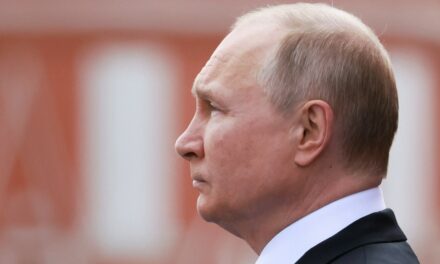We support our Publishers and Content Creators. You can view this story on their website by CLICKING HERE.
Incoming US President Donald Trump suggested once again this week that the United States expand into Canada and Greenland. Trump has talked this up before – both recently and during his first presidential term.
At first glance, this sounds like another one of Trump’s exotic diversions. For example, Trump has claimed that injecting bleach could help fight COVID-19, and he is obsessed with windmills.
These sorts of digressions are often dismissed as weird non-starters by observers, and then Trump’s attention drifts off someplace else.
But Trump has referred to Greenland repeatedly this year, and he also threatened Canada in his wild press conference this week. Trump is more focused on this than usual, provoking an extensive discussion of whether Trump seeks to absorb North America into the United States.
Trump has also threatened Mexico with military action over drug cartels operating in its territory and Panama over the Panama Canal Zone.
Three possible explanations stand out:
Trump Actually Seeks to Expand the United States
Trump may believe the United States should control all or most of North America.
Trump has distinctly illiberal foreign policy instincts. As Stephen Walt has noted, Trump basic approach to other countries, especially smaller ones, is to bully them.
That is how nineteenth-century imperial politics unfolded, complete with land grabs of the sort Trump is proposing.
In his first term, Trump notably hung pictures of President Andrew Jackson in the White House.
Jackson, like Trump, was prone to a populist, blustery foreign policy style and believed in manifest destiny.
Trump also genuinely does not care for US alliances. Rather than as supplements to US power, Trump sees them as hangers-on and free-riders. Trump just does not care that he is alienating US NATO allies with his threats against them.
He has been far more willing to antagonize allies than any other US president. So nervous are US allies about Trump’s North American threats that Germany and France felt compelled to warn Trump not to attack or otherwise try to take Greenland.
Trump Enjoys Attention and Purposefully Stirs It Up
Another obvious explanation is Trump’s clear psychic need to be as much as possible at the center of attention, especially media attention.
Trump is thrilled by the chaos and movement around him. In his first term, he notoriously fed the factional conflict within the White House, which most presidents struggle to tamp down.
Intrigue, drama, and conflict excite Trump. He regularly generated unnecessary commotion in his first term over topics he did not know or care much about – such as his suggestion to drop a nuclear weapon on a hurricane, build a wall along the border with Mexico, or receive a Nobel Peace Prize because he meet the leader of North Korea three times.
Nothing much came of these outlandish proposals – even Congressional Republicans balked at building the wall – but they kept the spotlight on Trump for weeks and months.
Trump is Diverting Attention from His Contentious Domestic Policies
Many have noted that Trump’s foreign policy bluster changes the subject nicely from the issues on which Trump ran for president.
Like most candidates, Trump emphasized domestic issues. Voters do not vote much based on foreign policy. Domestic economic perceptions particularly tend to drive the vote. And Trump ran on precisely that. He spoke regularly of inflation, immigration, and tariffs. Fixing these would ‘make America great again.’
President of the United States Donald Trump speaking at the 2017 Conservative Political Action Conference (CPAC) in National Harbor, Maryland. By Gage Skidmore.
However, as economists noted, Trump’s policy proposals would hurt US growth and raise inflation. Tariffs would hike prices across the board – especially the enormous import taxes Trump occasionally proposed.
An immigration crack-down would shrink the US labor supply, driving up wages. Both measures would lift inflation. Trump is close to Wall Street. Many of his cabinet appointees are extremely wealthy. They likely signaled to Trump that his proposals would be economically destructive.
That leaves Trump in an awkward bind, which foreign policy crises and diversions nicely alleviate—his coalition thrills to his image of no-nonsense toughness.
Picking on Greenland and Canada is an easy way to rally the base with substantial perceived gains: Canada and Greenland are both big. Trump is changing the subject.
In the end, Trump is unlikely to move on either target. Neither will capitulate to US pressure. US military coercion against NATO allies would end the alliance immediately and isolate the US from its long-time friends.
Trump may want that, but the economic consequences of lost trade relationships and the diplomatic costs of radical US isolation would be enormous.
About the Author: Dr. Robert Farley
Dr. Robert Kelly is a professor of political science at Pusan National University. Kelly is a 19FortyFive Contributing Editor.

 Conservative
Conservative  Search
Search Trending
Trending Current News
Current News 





